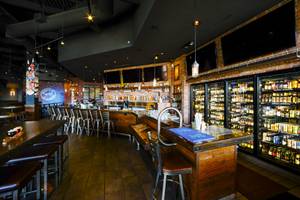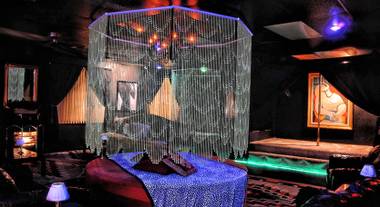You’d think Nevada would allow unfettered production of beer, given its native libertarianism, its desperate need to diversify and stimulate its economy, and its success in selling the sudsy stuff to more than 50 million tourists every year. But local politicians, lobbyists and an established oligopoly of distributors are thwarting such efforts to protect the status quo.
Las Vegas Assemblywoman Irene Bustamante Adams recently introduced bill AB 431 during the current legislative session in Carson City. While it raised production caps from 15,000 barrels to 20,000, it came with a retail cap (of 2,000 barrels) that doesn’t currently exist. Furthermore, it limited the number of brewpubs a local brewer could own to two locations—despite another bill (SB 130) raising the production caps to 45,000 barrels with zero stipulations.
However, AB 431’s strategy is clear when one considers its co-author—Alfredo Alonso, a lobbyist for the state’s alcohol distributors which control liquor sales for taxation purposes—and that, as reported by the Reno Gazette Journal, Adams accepted thousands in campaign money from those distributors, who would benefit if/when brewers hit their retail sales caps. (Adams didn't respond to the Weekly's emails for comment.)
“There’s no cap on beer being brought into the state, but the state enforces a production cap within it,” says Wyndee Forrest, co-owner of CraftHaus Brewery in Henderson. “We pay Nevada taxes and help build this community. Why should we choose to injure our own state’s economy?”
Though AB 431’s amendments have since raised the production cap to 40,000 barrels—and dropped the two-location limit—it comes with a 5,000-barrel retail cap, one reason why Forrest finds the bill problematic (though others with whom she serves on the Nevada Craft Brewers Association are generally in favor of it). She’s pushing for SB 130 to emerge as the bill of record, despite the industry pressure to get AB 431 passed.
Nick Fischella, co-owner of Downtown’s Banger Brewing, is more optimistic about AB 431, noting that Southern Nevada breweries have yet to come close to approaching the current production cap. And yet, he’s just as mystified as Forrest that there are limits in the first place. “It’s hard for me to understand how someone can cap your business to grow,” he says. “You should be able to grow it as much as you want.”
While the craft beer industry has soared both financially and culturally, Nevada’s microbrewery scene is still nascent; tourists aren’t visiting their storefronts en masse yet, and beer conglomerates like Anheuser-Busch InBev and MillerCoors are the market’s Goliath with both their big domestic brands and the large-scale craft brewers (like Goose Island and Saint Archer) they’ve purchased. But Forrest believes Southern Nevada breweries have a David-like edge.
“We can respond and move quicker than the big beer companies,” she says. “The biggest advantage we have over the macrobrewers is our people. We have faces and stories and passion. That’s what we share with our community on a daily basis. That’s where [the macrobrewers] will never win.”







